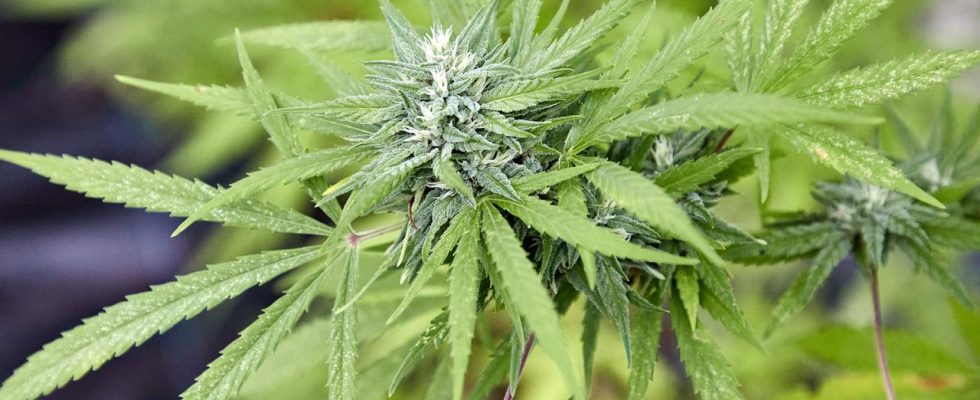The Bundestag is today discussing the partial legalization of cannabis. The traffic light coalition’s plan is controversial, criticism comes from the police union – but also from supporters.
The sound of the new traffic light coalition was initially cheerful and relaxed when it came to the topic of cannabis legalization. For example, Federal Finance Minister Christian Lindner announced several times in 2022 that the government was working on making Bubatz legal.
Bubatz, that’s supposed to be youth slang for weed or a joint. The question quickly became “When will Bubatz be legal?” Chancellor Olaf Scholz also asked and caused amusement on several occasions. For example at a citizens’ dialogue in Magdeburg or in ARD summer interview.
Legalization in two steps
When designing the proposed law, the SPD, Greens and FDP quickly realized that implementation was complicated and that some of the plans could violate European law. The government therefore agreed to carry out legalization in two steps; we are also talking about two pillars.
When presenting the bill for the first pillar a few weeks ago, which is now being discussed in the Bundestag, Federal Health Minister Karl Lauterbach once again emphasized that there were several problems that legalization was intended to address. One problem: Cannabis consumption in Germany is increasing. The Ministry of Health assumes that several million people smoke weed at least occasionally despite the existing ban.
Lauterbach described “increasing drug-related crime” as problem number two. Cannabis offenses play an important role in this. And problem number three: highly potent or contaminated drugs on the black market. The federal government’s drug commissioner, Burkhard Blienert, reports in an interview with the ARD capital studio For example, cannabis that is mixed with other substances such as synthetic cannabinoids, “which can be very harmful to health”.
More than 200 pages long bill
The declared goal of Health Minister Lauterbach and the traffic light coalition is to address these problems. Health protection should be improved for people who already consume. At the same time, the SPD politician also emphasizes that teenagers and young adults should be better informed about the dangers of cannabis. It’s not about creating new incentives for consumption.
Specifically, the bill proposes to legalize the possession of up to 25 grams of cannabis for adults. Growing up to three hemp plants at home should be allowed. In addition, the members of the cannabis club should be allowed to grow cannabis together.
But it gets complicated in detail: it is more than 200 pages long Draft law on the controlled handling of cannabis.
Also controversial within the coalition
“A lot of theory, but little practice,” is the accusation of the deputy federal chairman of the police union (GdP), Alexander Poitz. He warns that the police simply cannot control the planned ban on the consumption of cannabis within 200 meters of youth facilities. There was a lack of suitable GPS devices with up-to-date information about where cannabis can and cannot be consumed. The GdP fears that the law will result in additional work for the police instead of the announced relief.
Some of the planned rules are also controversial within the coalition. Not much of the former Bubatz looseness remains in the legal text. For example, adults should be allowed to grow hemp together in cannabis clubs, but consumption on site should be prohibited.
“It makes no sense to say that if you want to consume cannabis, then you have to do it in your own four walls,” says Green Party politician Kirsten Kappert-Gonther, chairwoman of the Health Committee in the Bundestag, to the ARD capital studio. Joint consumption serves to protect health, also because there is social control.
The consumption ban and the 200 meter rule are just two of several points that members of the SPD, Greens and FDP are still discussing. They want to change the bill in several places during the parliamentary process and, as Kappert-Gonther calls it, make it “more practical”.
Fundamental criticism from the Union
The criticism from the CDU and CSU, however, is much more fundamental: they firmly reject the planned legalization. In their own motion on the subject, they accuse the federal government of acting irresponsibly. Rejection also comes from the AfD. The left, on the other hand, is in favor of legalizing cannabis.
After the first reading in Parliament, the draft law will be discussed further in the specialist committees. An expert hearing on the topic is also planned. The Bundestag is scheduled to vote on it this year.

